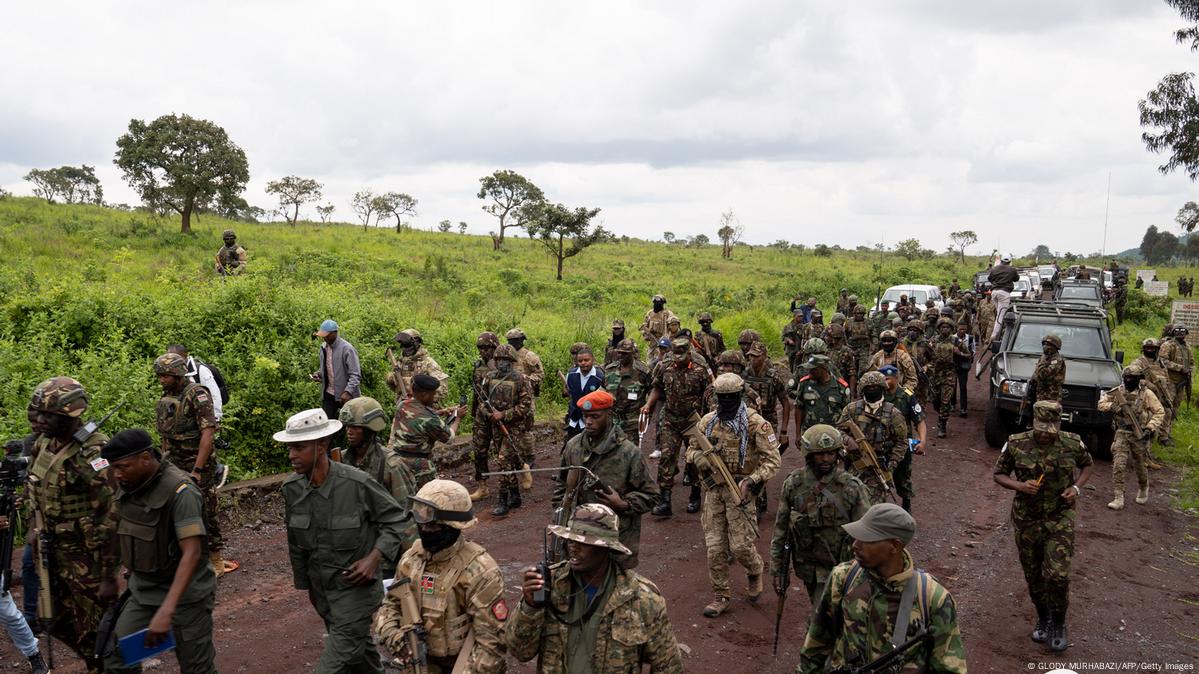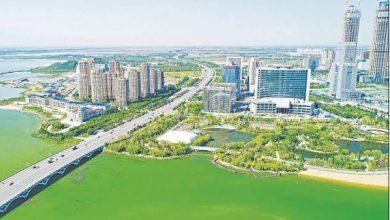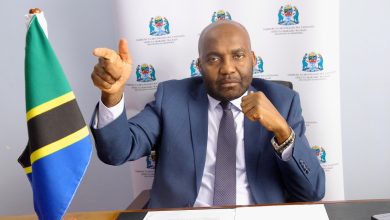Civil society’s bold call for peace in DRC

DAR ES SALAAM: IT is not every day that you hear a crowd of civil society representatives chant for peace while armed with the unrelenting force of words, but that is exactly what transpired during the Regional Civil Society meeting in Dar es Salaam from February 7 to 9, 2025.
The venue, hosting passionate voices from across the region, was not just any diplomatic gathering. It was a call to action-a rallying cry that came not from the halls of government, but from the grassroots of the region’s civil society actors.
The meeting, initiated by the National Civil Society Forum of the Democratic Republic of Congo (DRC) and supported by the Regional Civil Society Forum, emerged as a critical juncture in addressing the escalating security situation in the DRC.
At the heart of it all, Emily Kariuki, Executive Director of the Mwalimu Nyerere Foundation, passionately articulated the civil society’s urgent stance on the matter.
The message was clear: The crisis must not be allowed to spiral out of control; immediate action was necessary to avoid further regional instability.
“The consequences of this ongoing conflict,” she said, “if left unchecked, could ripple out of the DRC and destabilise the entire Great Lakes region.”
And just like that, the gravity of the situation was laid bare. The message was not sugar-coated or wrapped in diplomatic niceties-it was a sharp reminder that the people of the DRC are not alone in their suffering, but are instead part of a larger regional puzzle that demands a collective effort to solve.
Ms Kariuki went on to stress the civil society’s emphatic call for the following actions, delivered with the urgency of a fire alarm ringing through a burning building: Immediate cessation of hostilities: “Stop the fighting, now,” she urged.
“The violence has gone on for far too long, and it is only pushing the region closer to the brink. This war cannot go on while lives are torn apart by violence and devastation.” Withdrawal of uninvited foreign armed forces: The presence of foreign forces in the DRC has been a constant point of contention and civil society has made it clear that this situation must be rectified.
“The DRC must be allowed to regain its sovereignty,” Ms Kariuki noted. “Foreign forces, regardless of their origin, have no place in the heart of the DRC.” Restoration of peace: “Peace is not just a word, it’s a fundamental human right,” she continued.
For those living in war-torn areas, peace isn’t a luxury-it’s a lifeline. Rebuilding that peace must be the top priority. Justice for victims: This one hit home.
Civil society didn’t just want an end to the fighting; they demanded accountability for those who have suffered at the hands of violence. “Justice must be served,” she pointed out, “for the victims who have endured horrors no one should ever face. Their pain must not be forgotten.” The tone of the meeting was nothing short of impassioned.
ALSO READ: Eastern DRC sees uneasy calm after ceasefire appeal
While these calls for action might sound simple, they carry with them the weight of decades of conflict, loss, and suffering. The region’s civil society was not merely issuing a set of demands; they were advocating for dignity, for the right to live in peace, and for the chance to rebuild a broken nation.
Civil society welcomed the joint EAC-SADC Summit, which took place in Dar es Salaam on February 8, 2025. The summit’s communique was a significant step forward, acknowledging the grave security crisis in the region.
The heads of state wasted no time, making their position clear: Immediate cessation of hostilities was paramount.
“We need to stop the violence,” the communique read, “and restore essential services to affected communities.” This was no time for hesitation. The leaders also expressed their commitment to resolving the crisis through diplomatic engagement, particularly under the frameworks of the Luanda and Nairobi processes.
They demanded the Chiefs of Defence Forces from both the EAC and SADC meet within five days to work out technical measures for an immediate and unconditional ceasefire.
You could almost hear the collective sigh of relief echoing from the civil society participants in Dar es Salaam. Finally, the situation seemed to be moving toward real solutions, not just talk. But the civil society actors were not ready to just sit back and relax.
They stressed that, while diplomatic progress was important, it was the implementation of these agreements that truly mattered. “We have seen too many promises in the past,” one civil society representative remarked, “and too many failures to keep them. We need to make sure this time is different.” And the stakes couldn’t be higher.
The meeting also underscored the importance of a coordinated regional approach. The DRC’s security, humanitarian and political challenges were not just a Congolese issue they were a regional one. A fragmented response would only perpetuate the instability. The civil society insisted that a coherent response would be the only way to tackle the multifaceted crisis. “
We’re not asking for miracles,” said Patient Bashombe, the DRC Civil Society Committee of Peace and Security Coordinator.
“What we are asking for is action. Action that is swift, action that is united, and action that brings peace and security to our people.”
This call for action didn’t fall on deaf ears. The regional actors—led by the EAC and SADC—have shown a remarkable commitment to moving forward.
The communique from the Joint Summit also emphasized the need for a roadmap that outlines immediate, medium and long-term implementation measures. Importantly, it addressed the necessity of financing these plans, making it clear that words alone won’t bring about peace resources, dedication and action are needed to secure a sustainable future.
One major area that received special attention was the withdrawal of foreign armed forces from the DRC. This long-standing issue remains one of the primary obstacles to peace and sovereignty in the country. The summit urged for a clear plan on how to deal with this.
For civil society, this was nonnegotiable. “No external forces can dictate the fate of the DRC,” said Bakanibona Isaac, the Legal Representative for the Burundi Association for the Consolidation of Peace. “We are calling for the restoration of our dignity.”
But the summit was not all about diplomacy and policy. It was also about solidarity. “We stand with the DRC,” the Heads of State affirmed, “in their pursuit of independence, sovereignty and territorial integrity.” The leaders also condemned the recent attacks on diplomatic missions in Kinshasa, recognising that such actions have no place in a civilised world.
Ensuring the protection of diplomats and citizens alike was a key point of focus for the summit. The civil society’s meeting in Dar es Salaam may not have been the final word on the DRC’s security situation, but it was a clarion call for urgent action.
Their demand for peace, justice and a united regional response echoed far beyond the conference room, reverberating throughout the corridors of power in Africa and the world.
Ultimately, as the summit closed and the communique was delivered, one thing was clear: The international community cannot afford to sit back and watch the DRC descend further into chaos. The time for action is now before the flames of conflict spread even further across the Great Lakes region.





